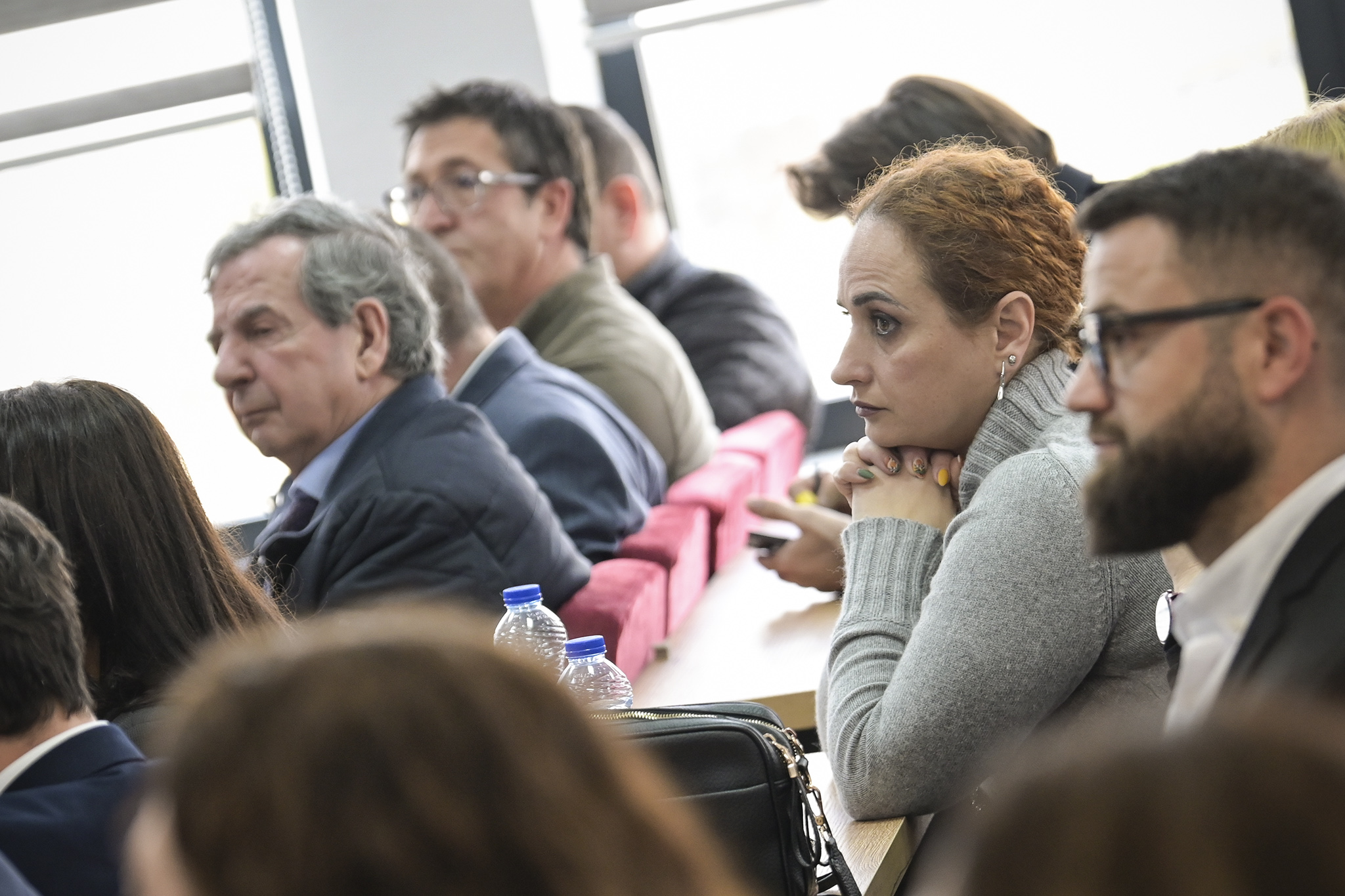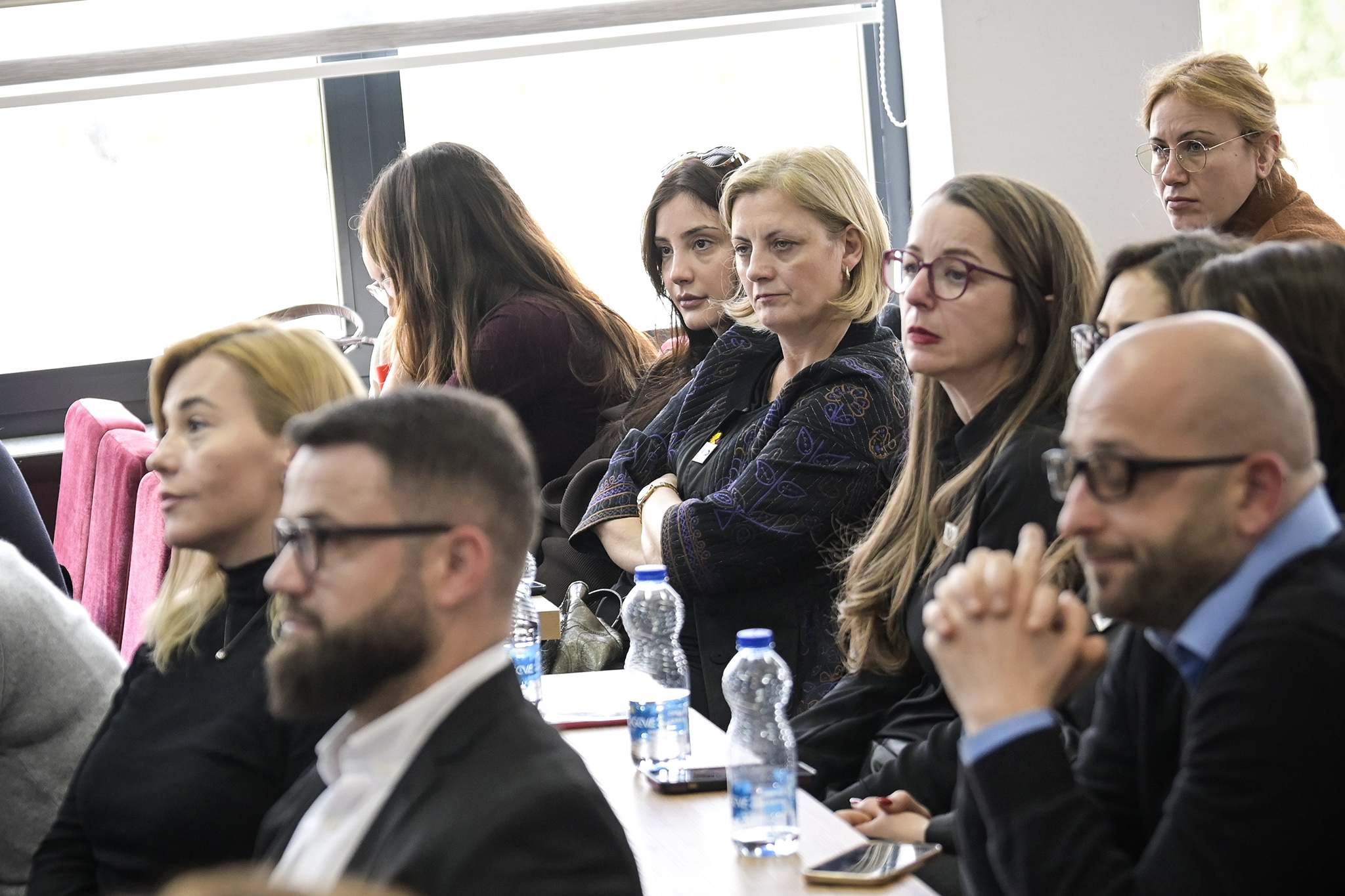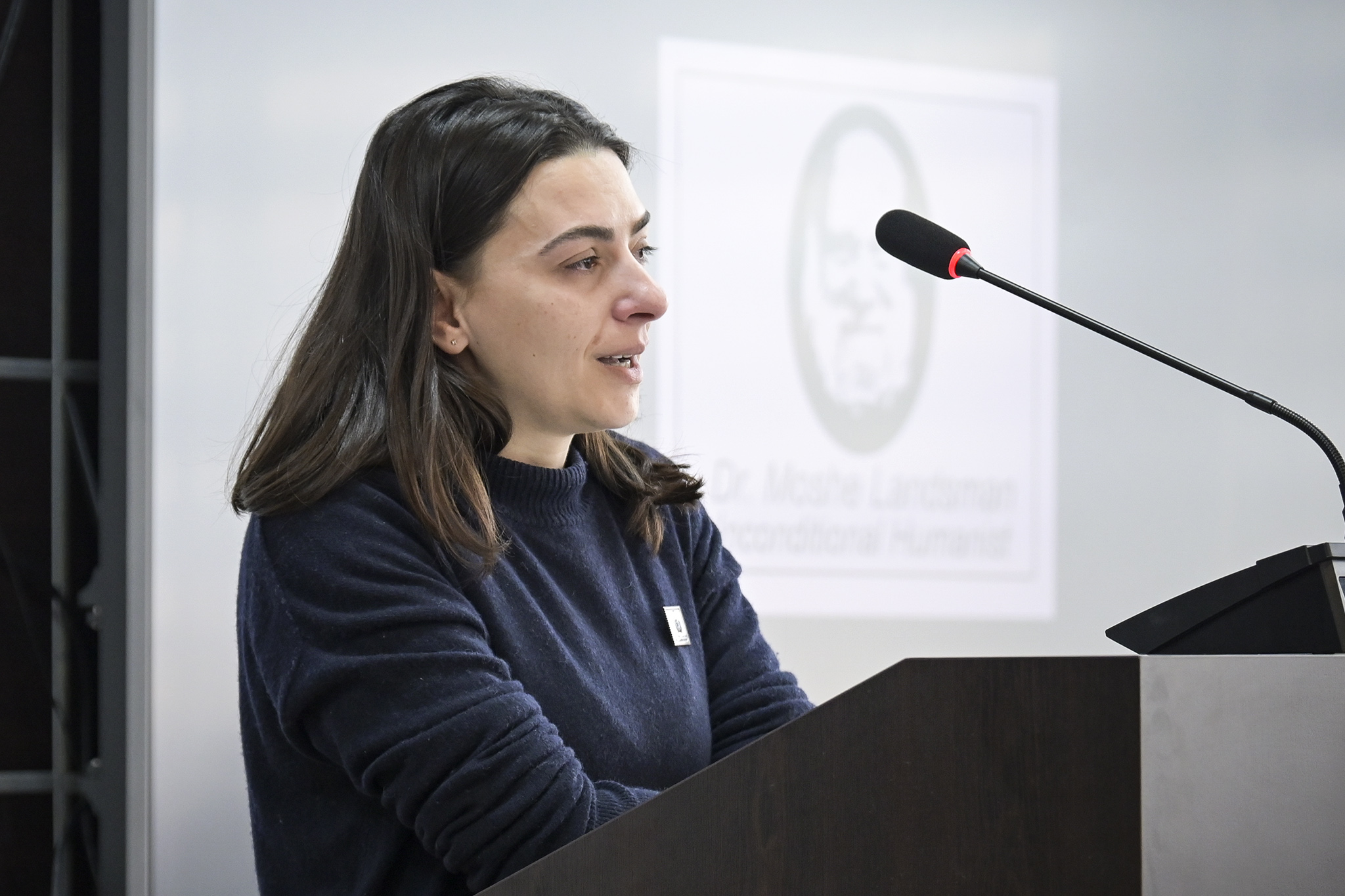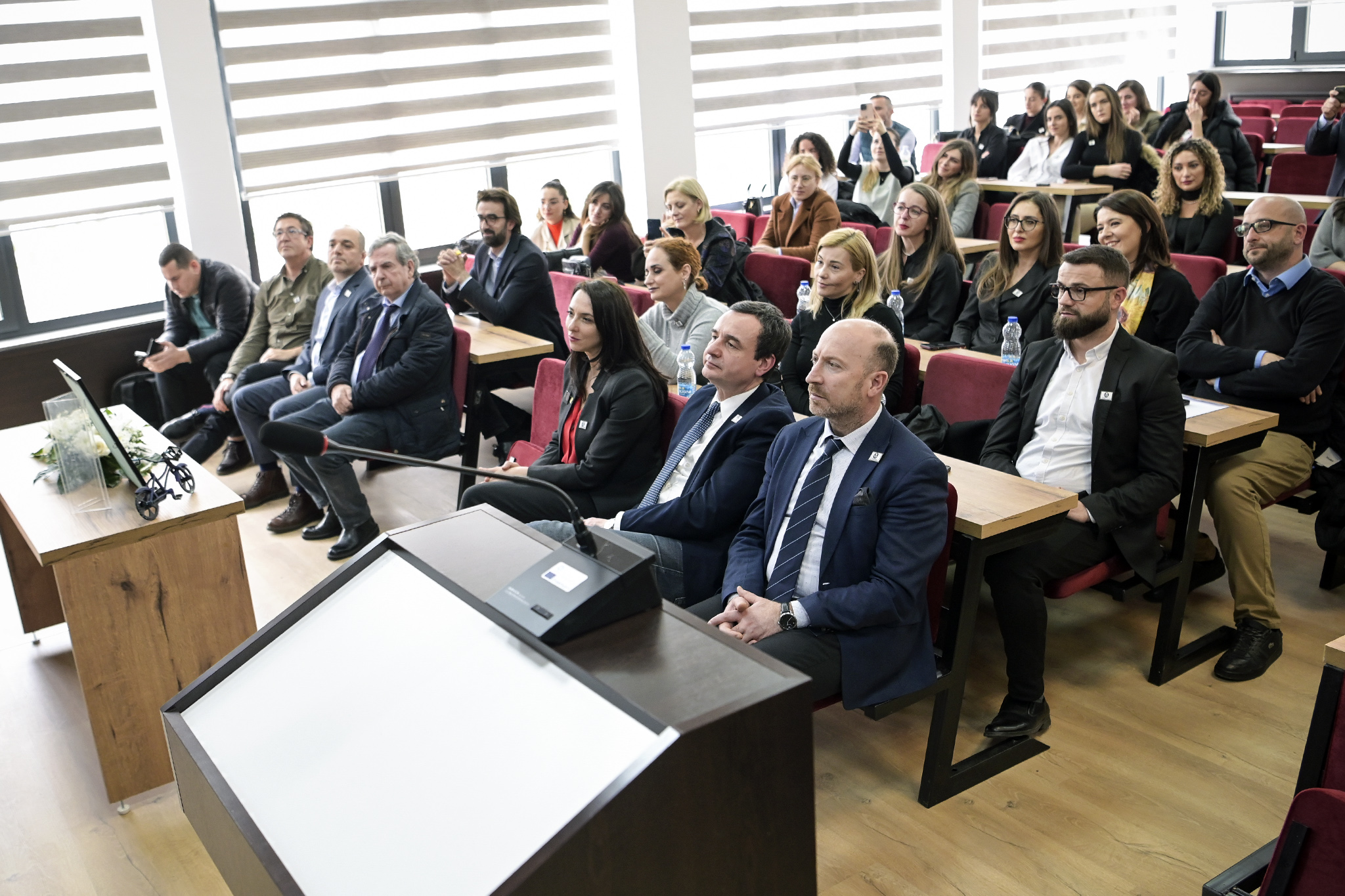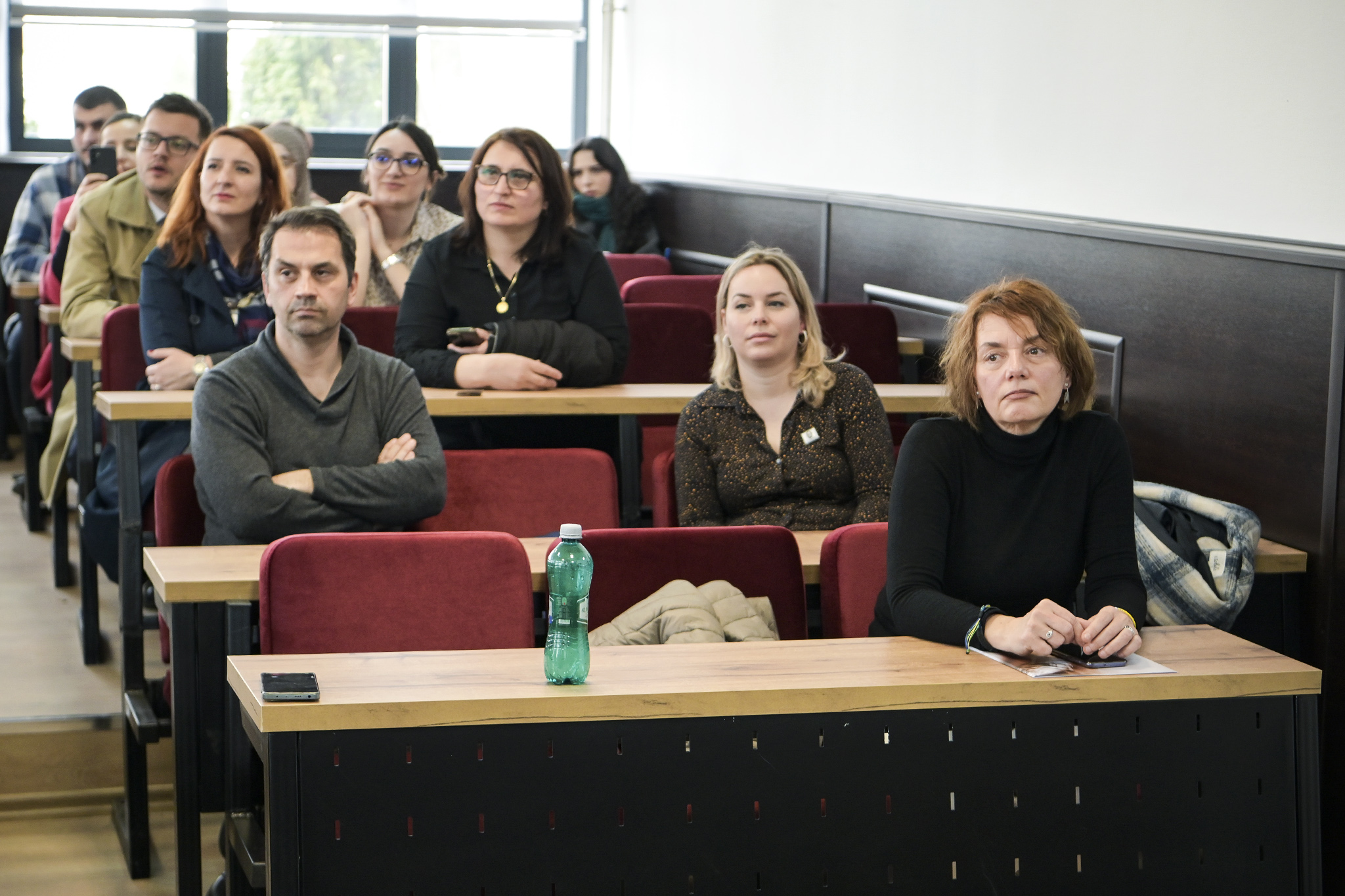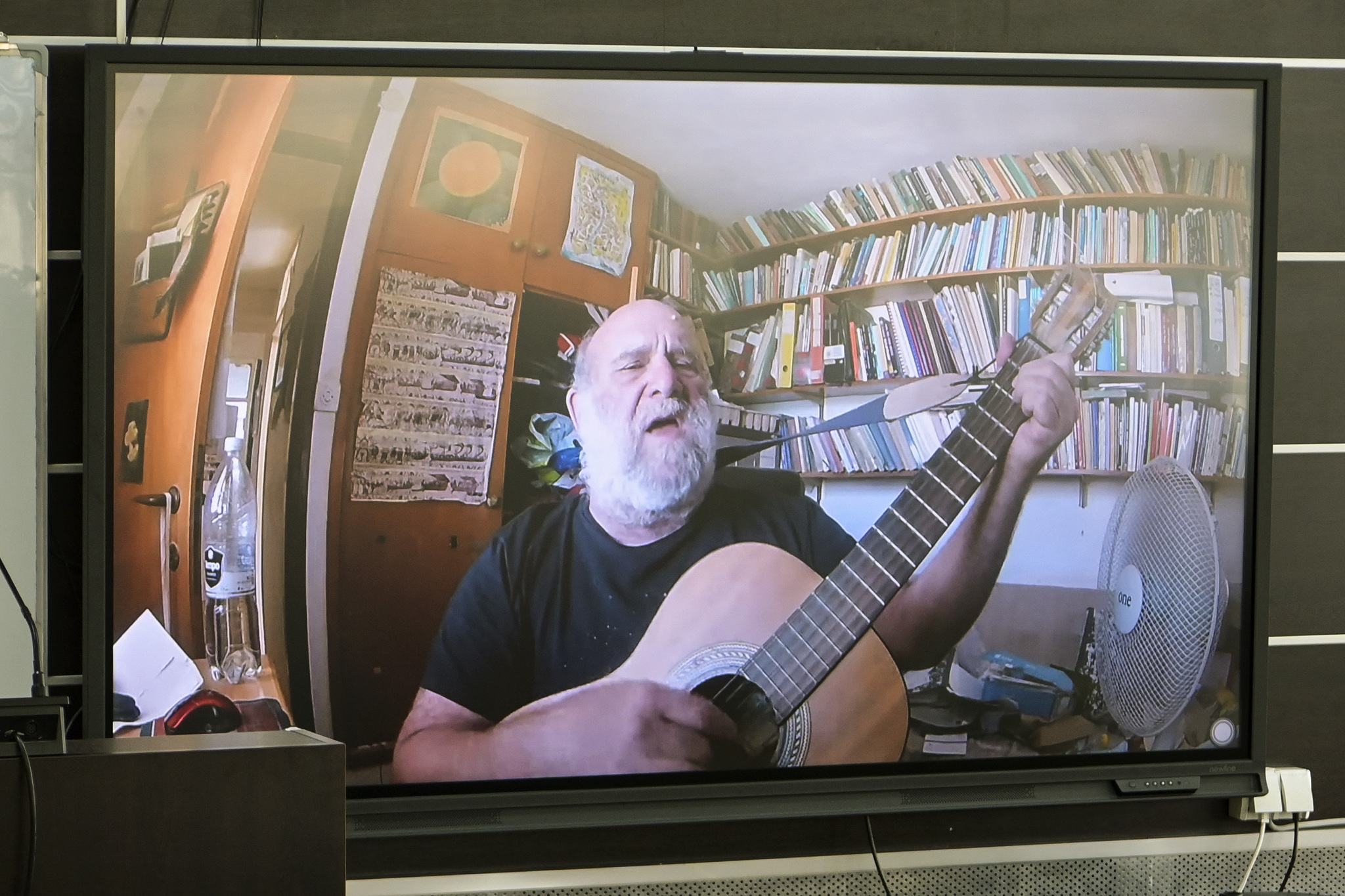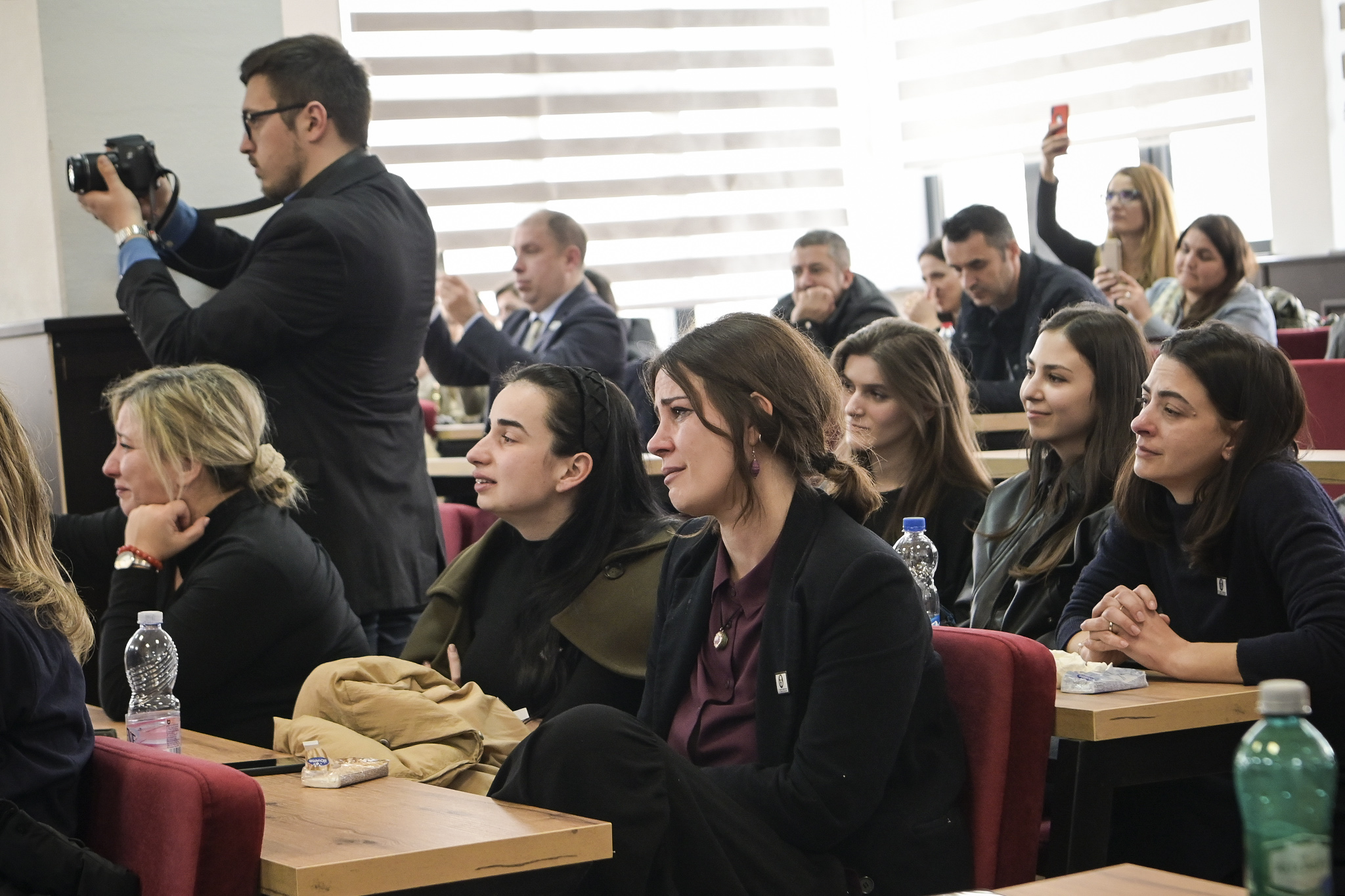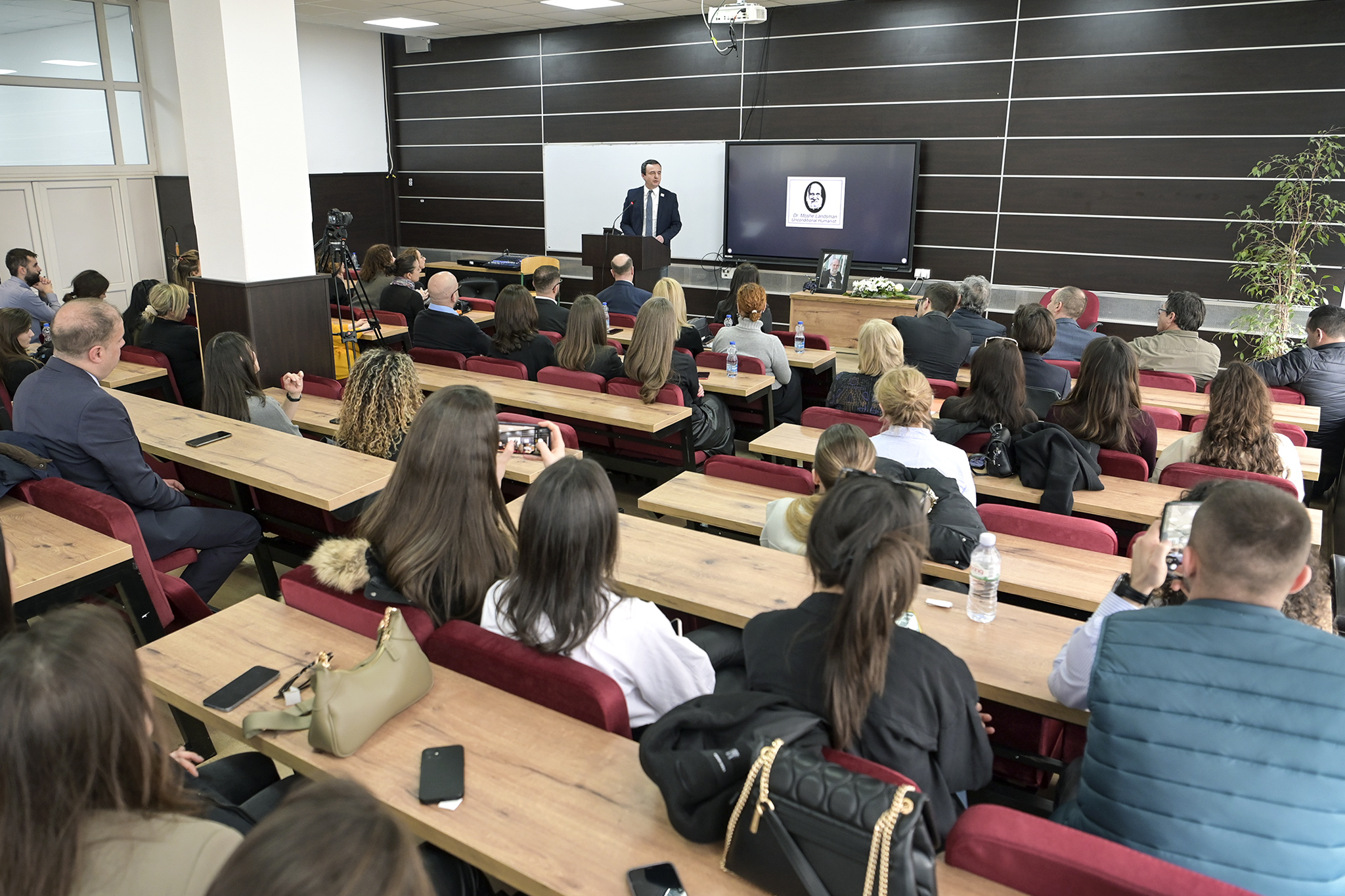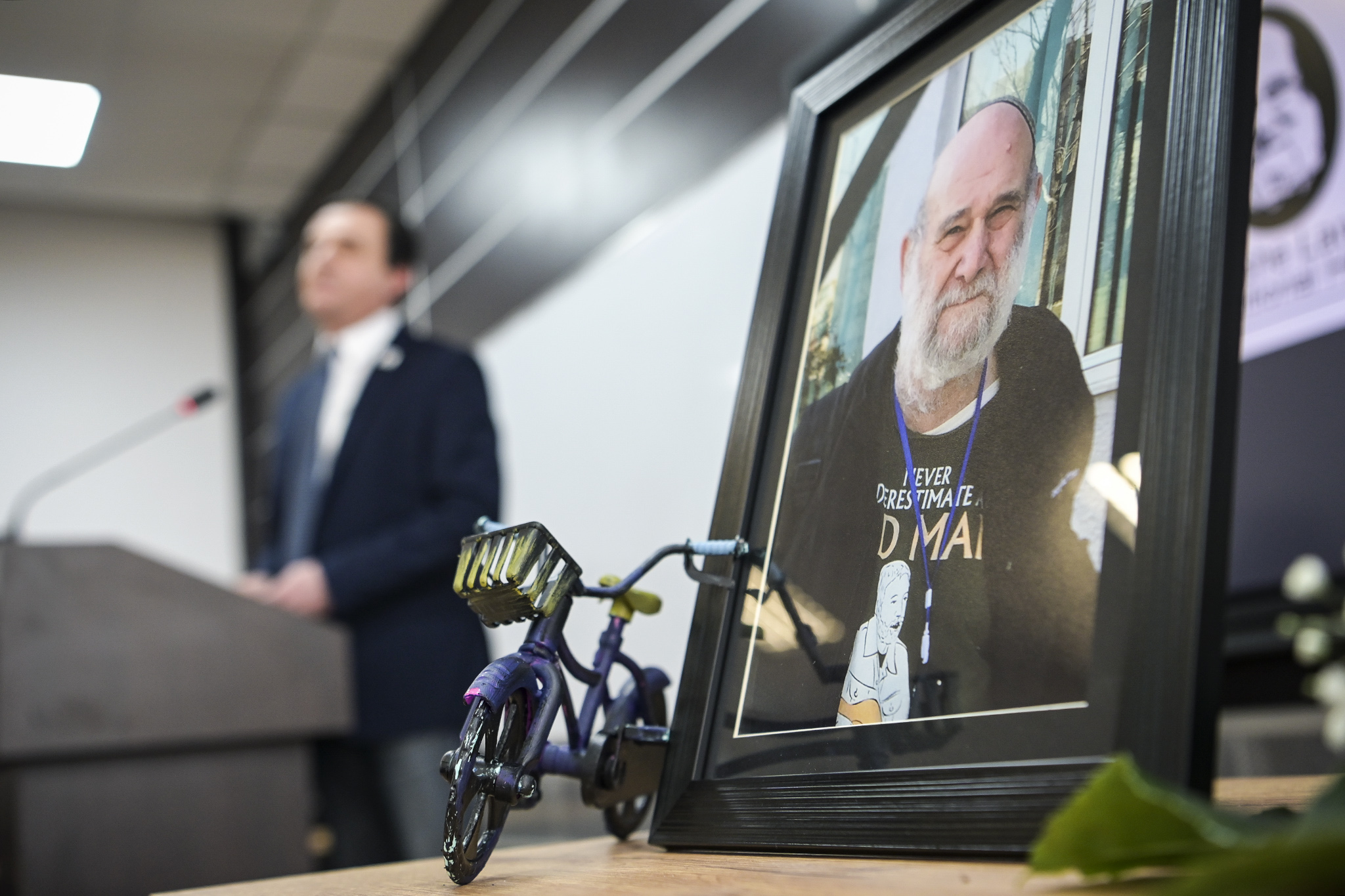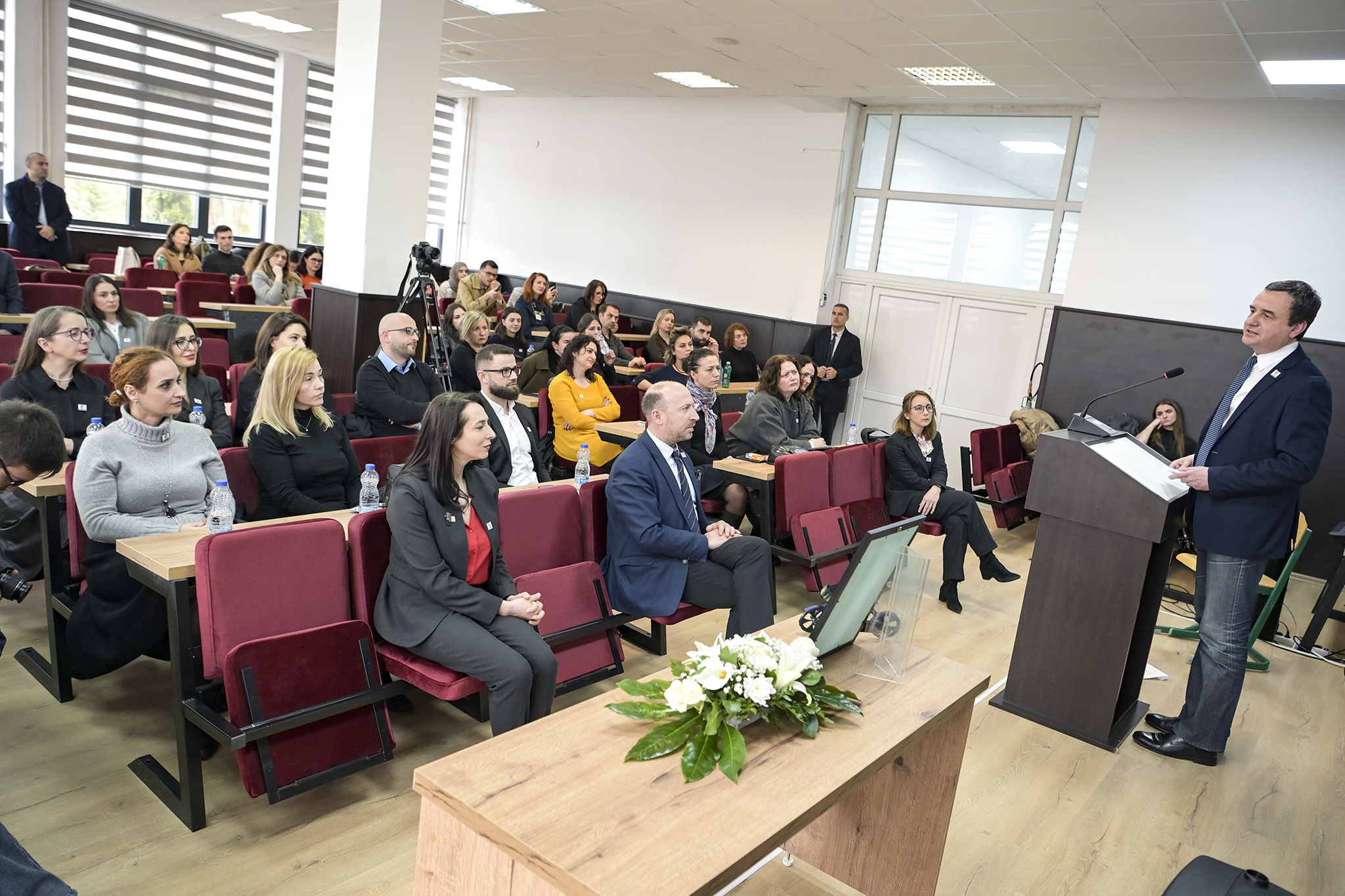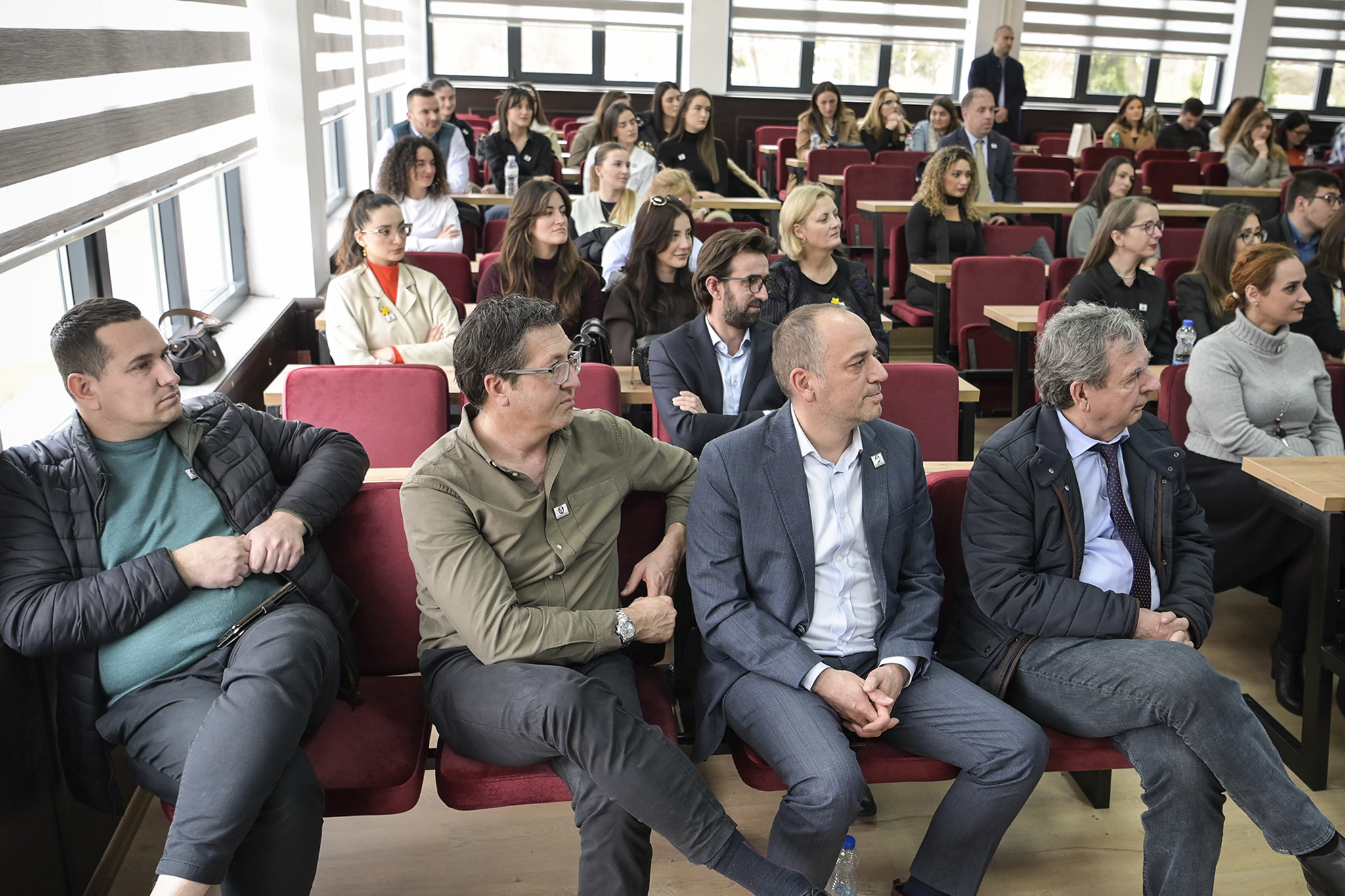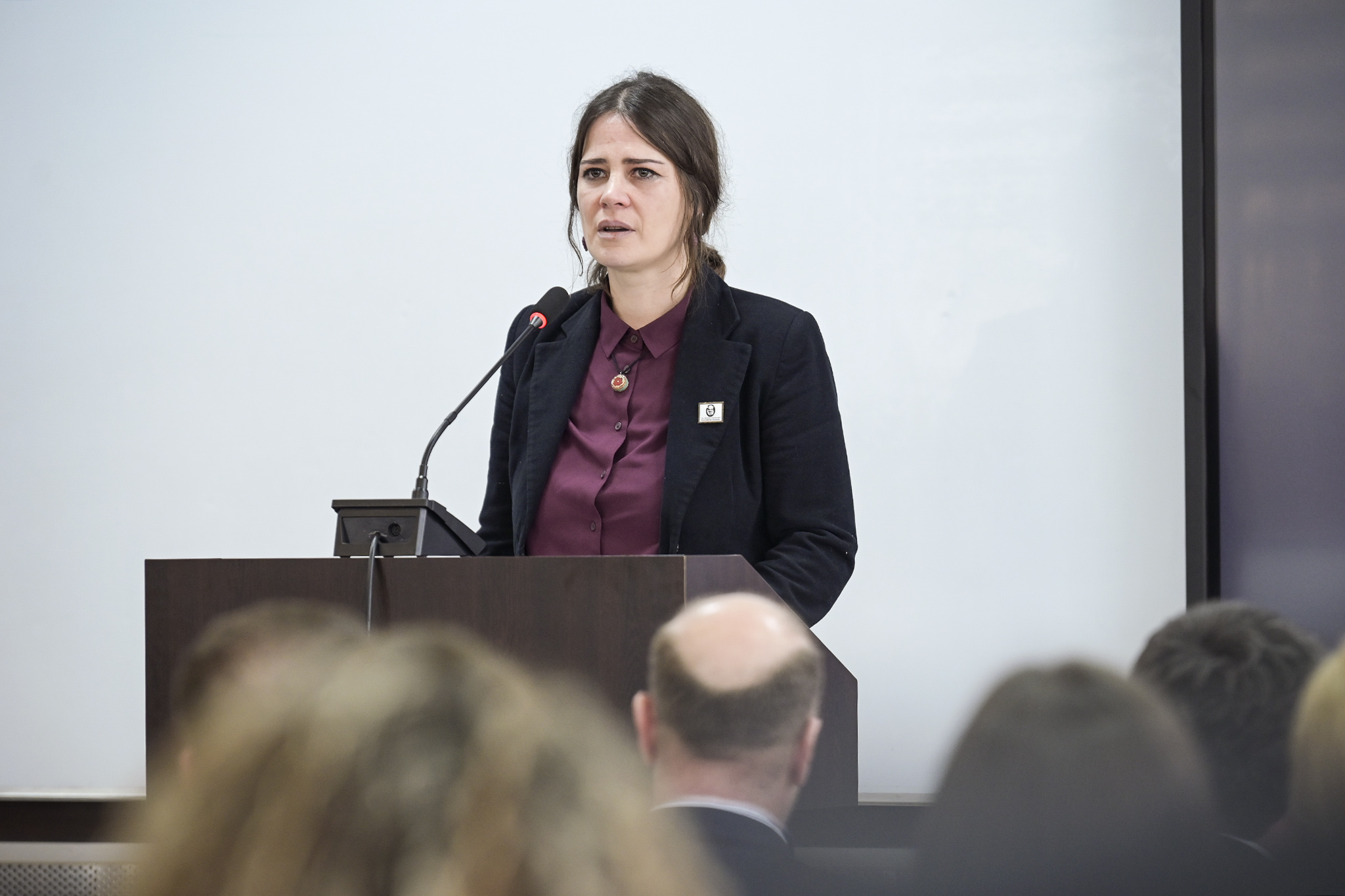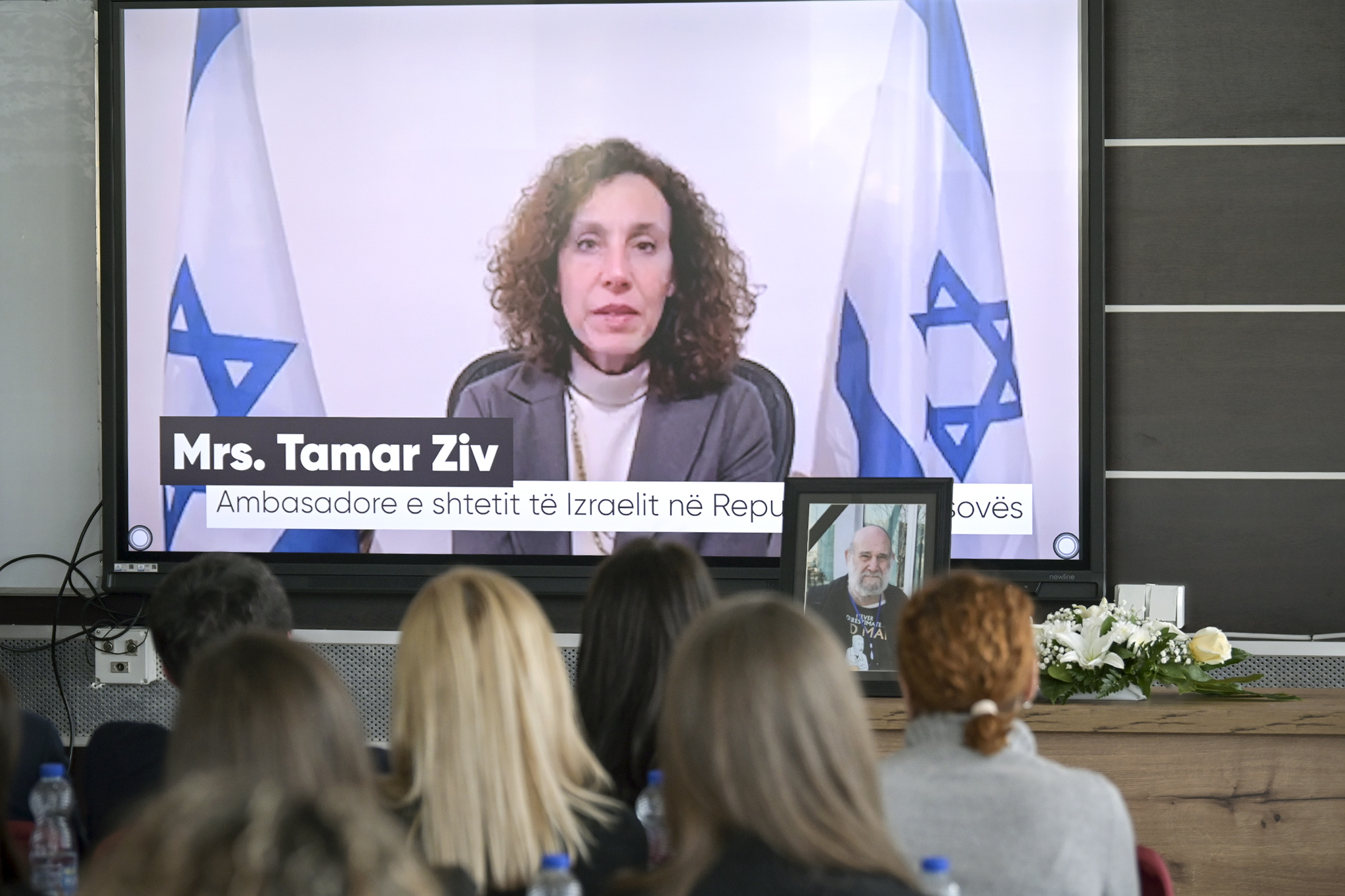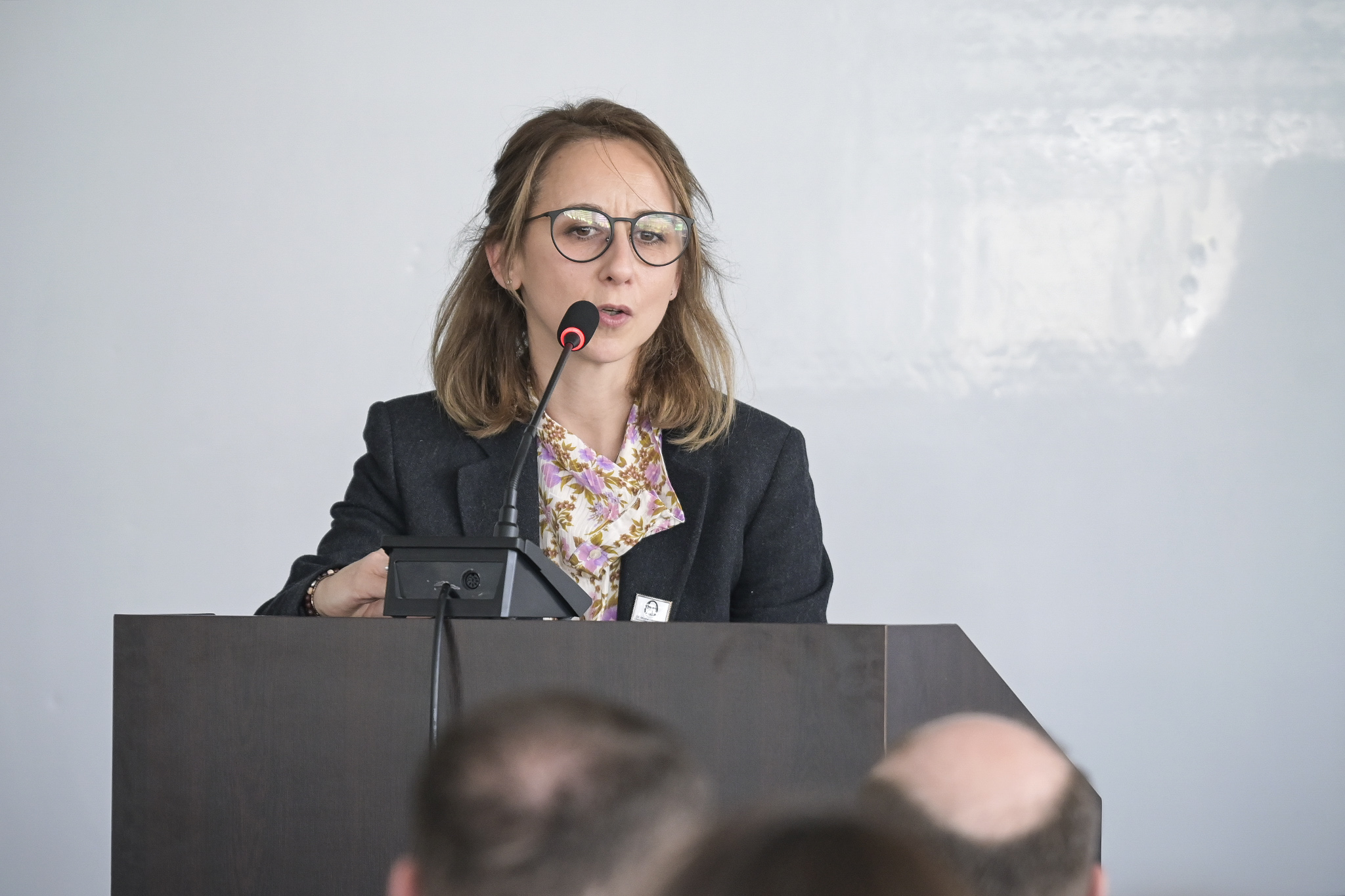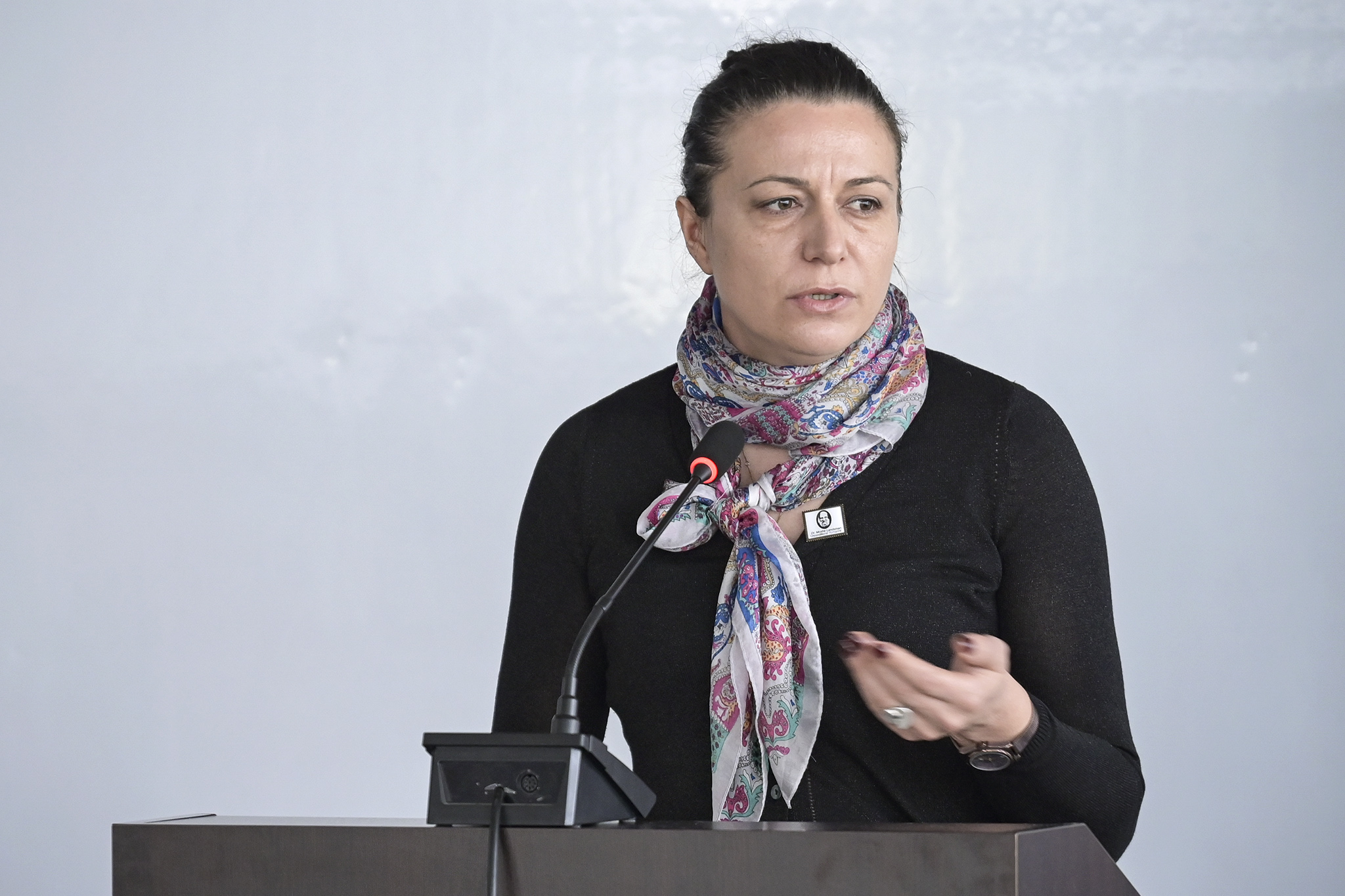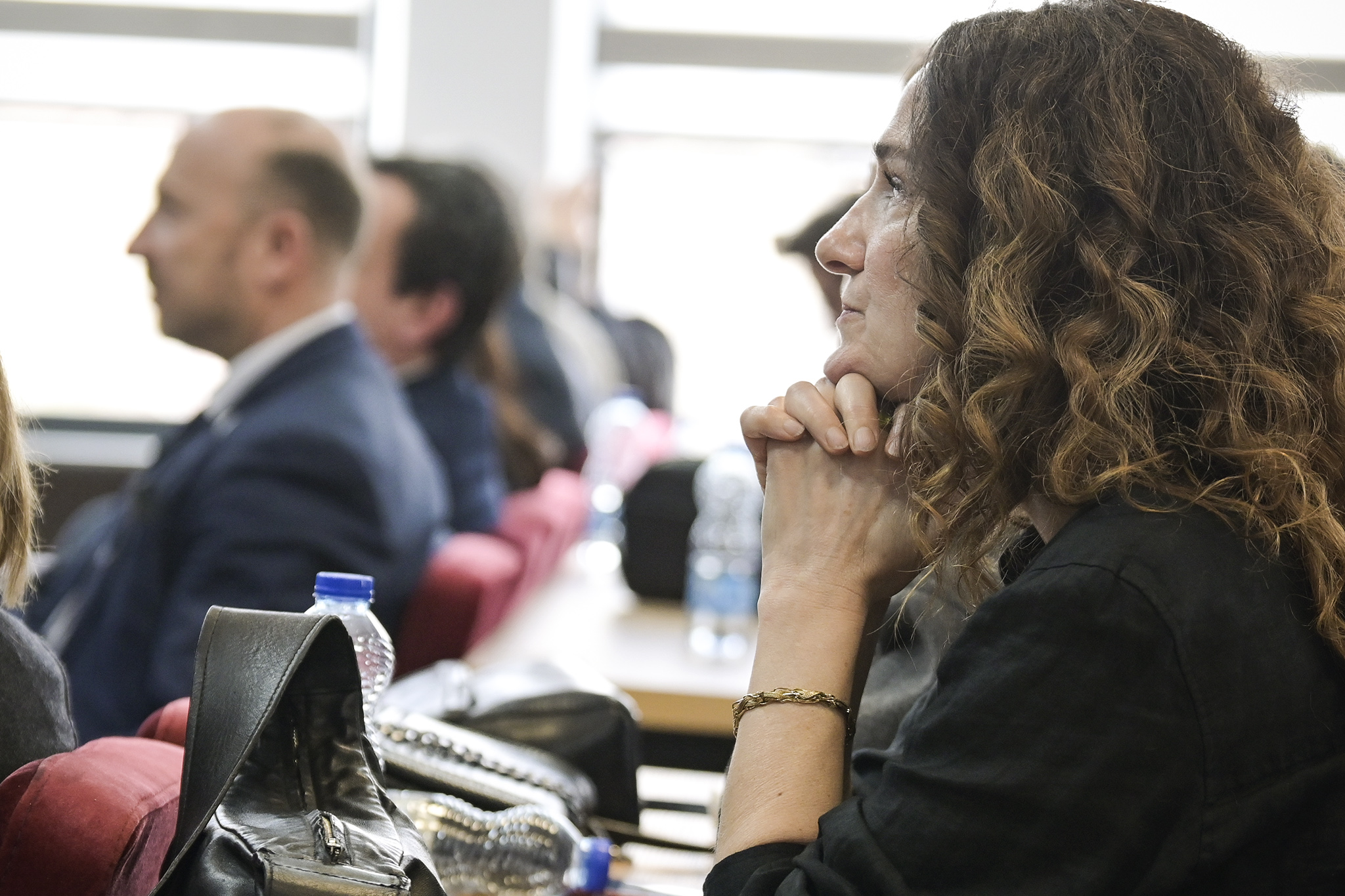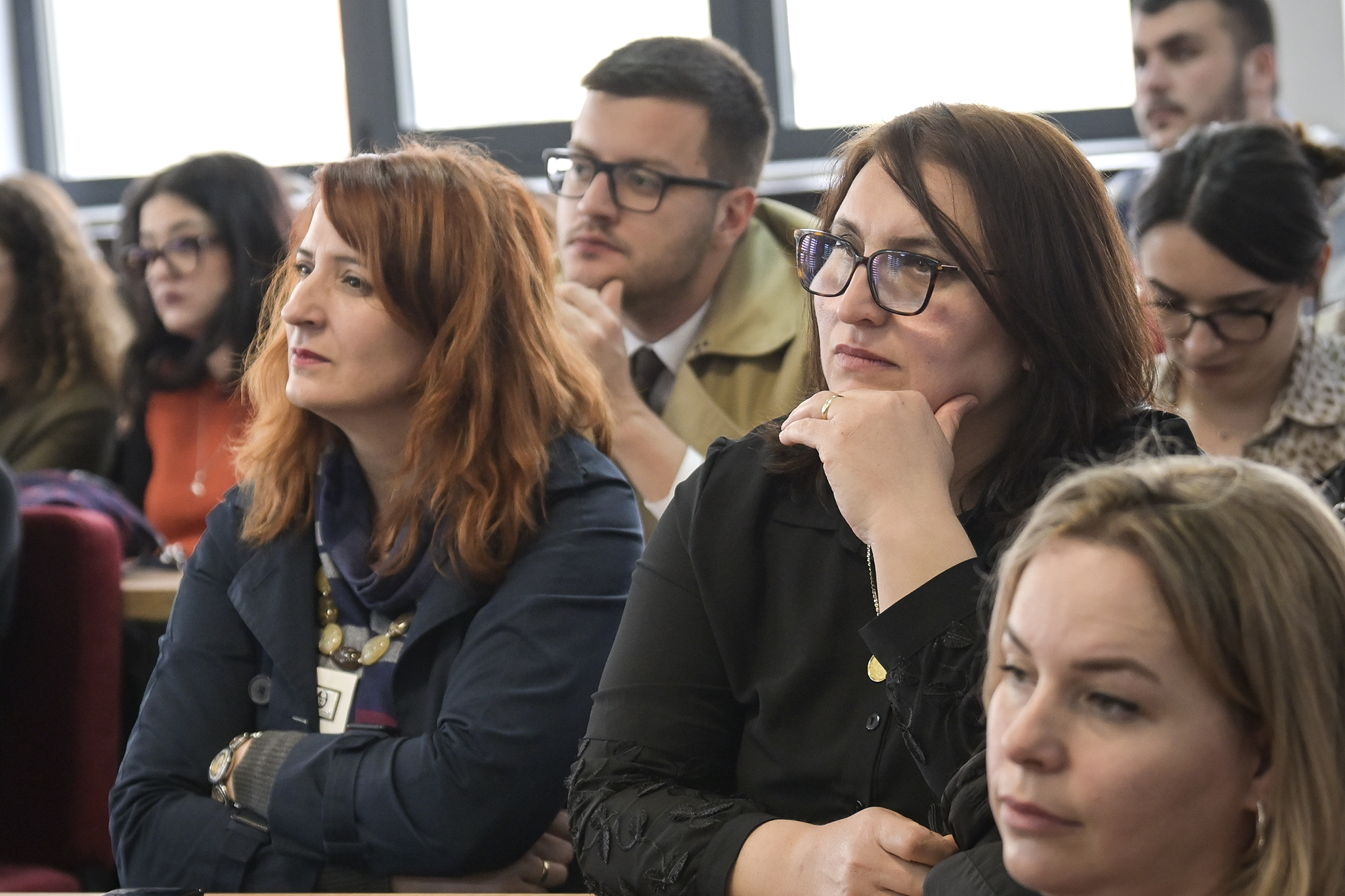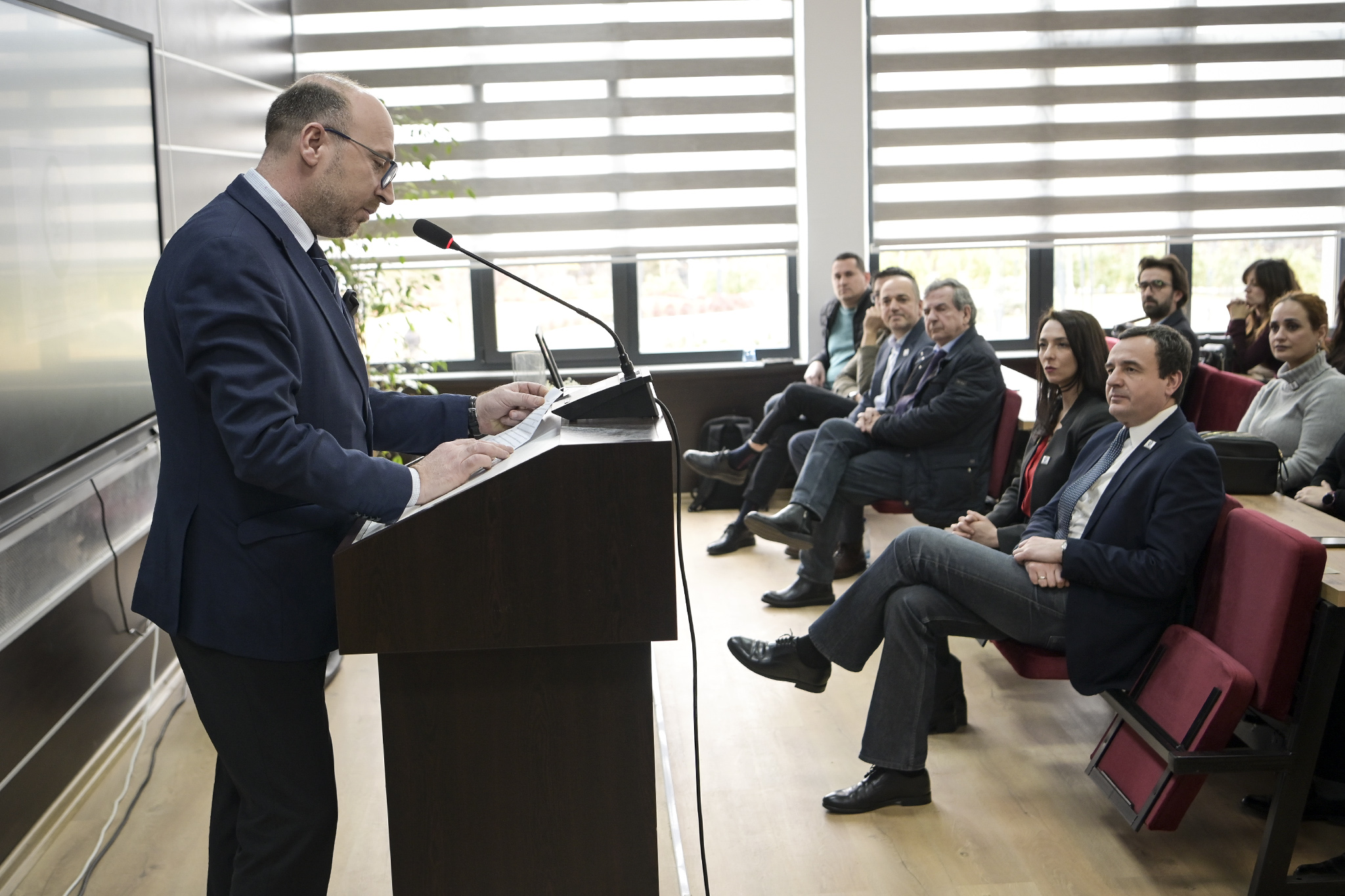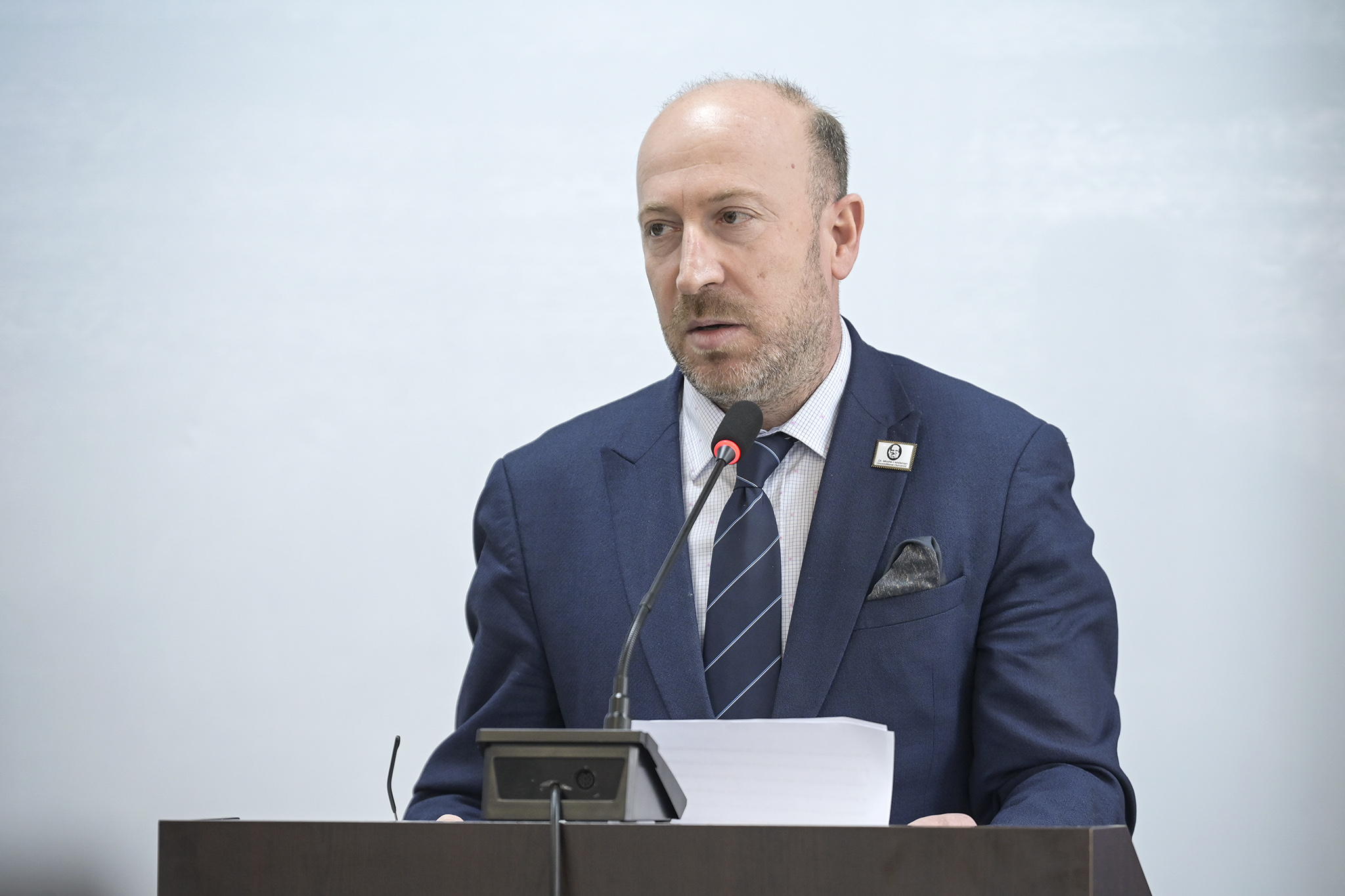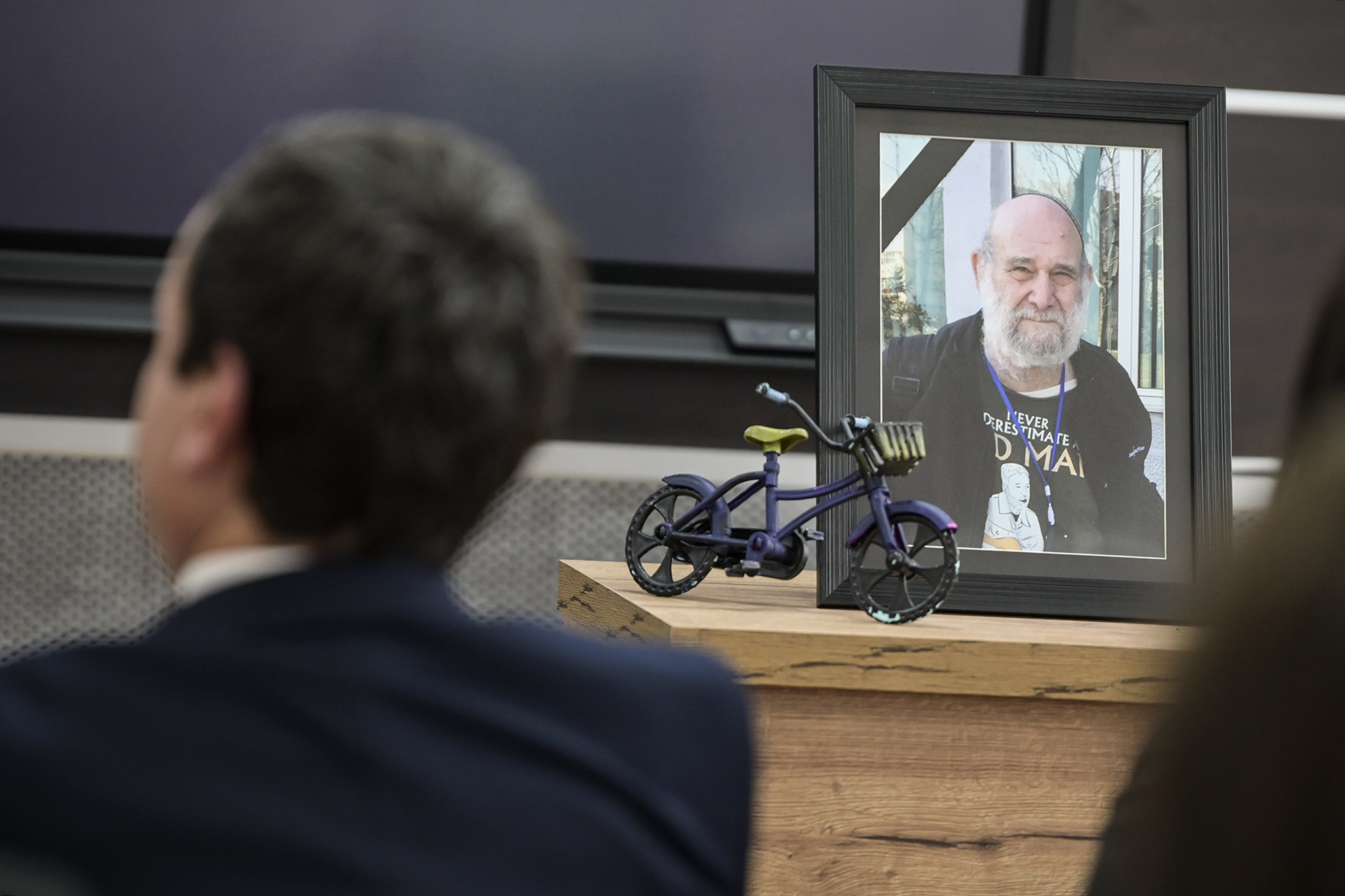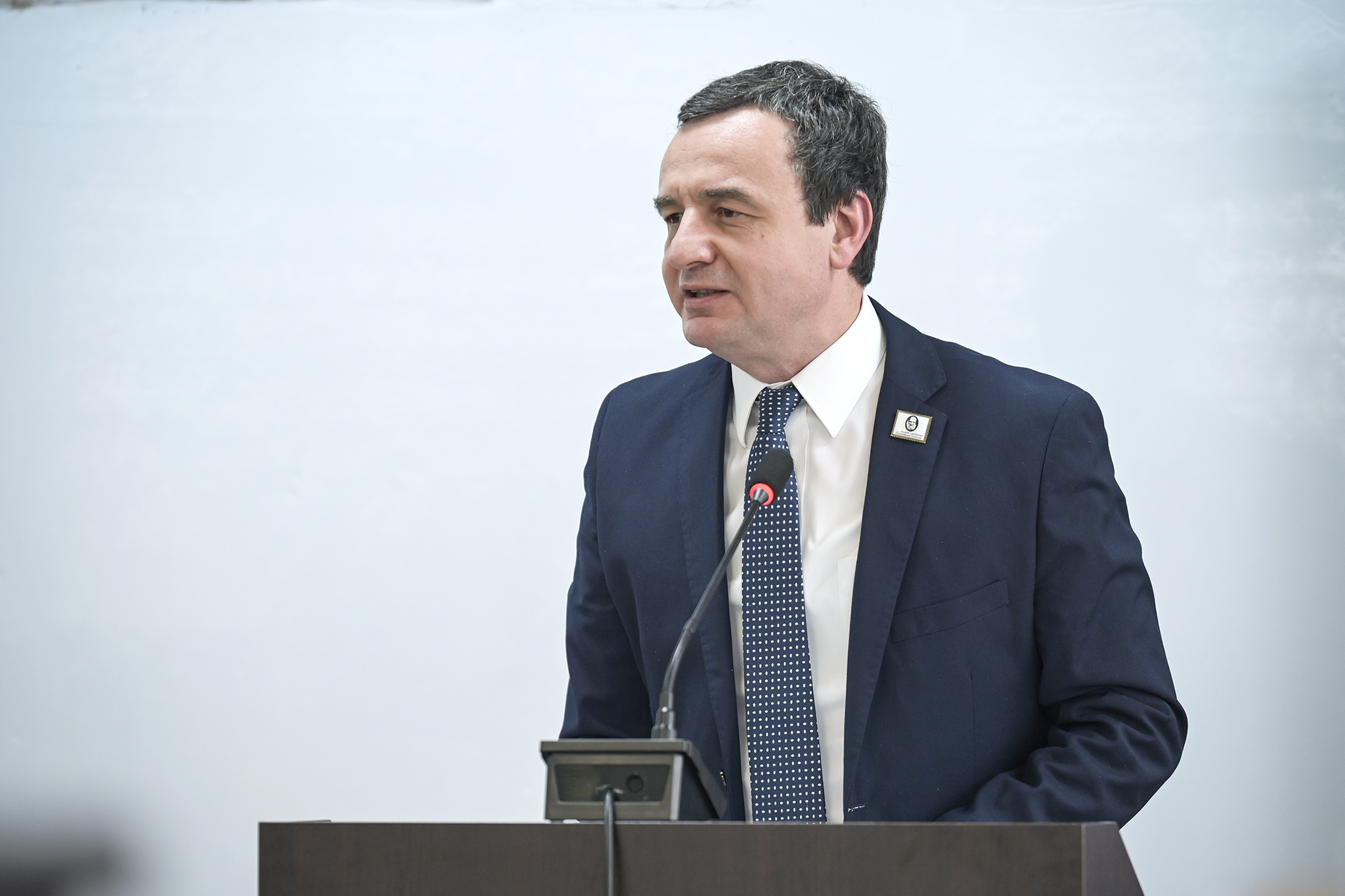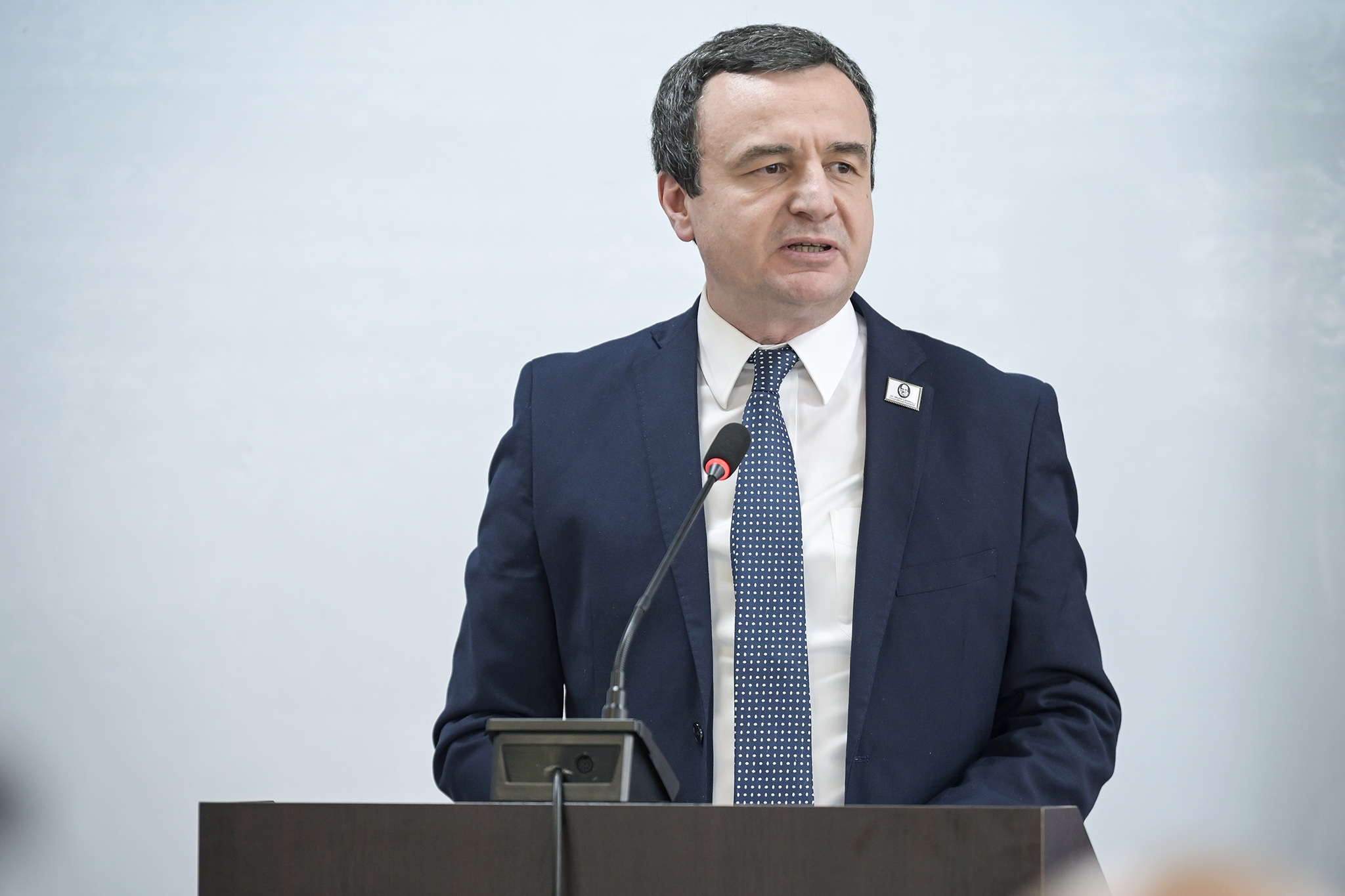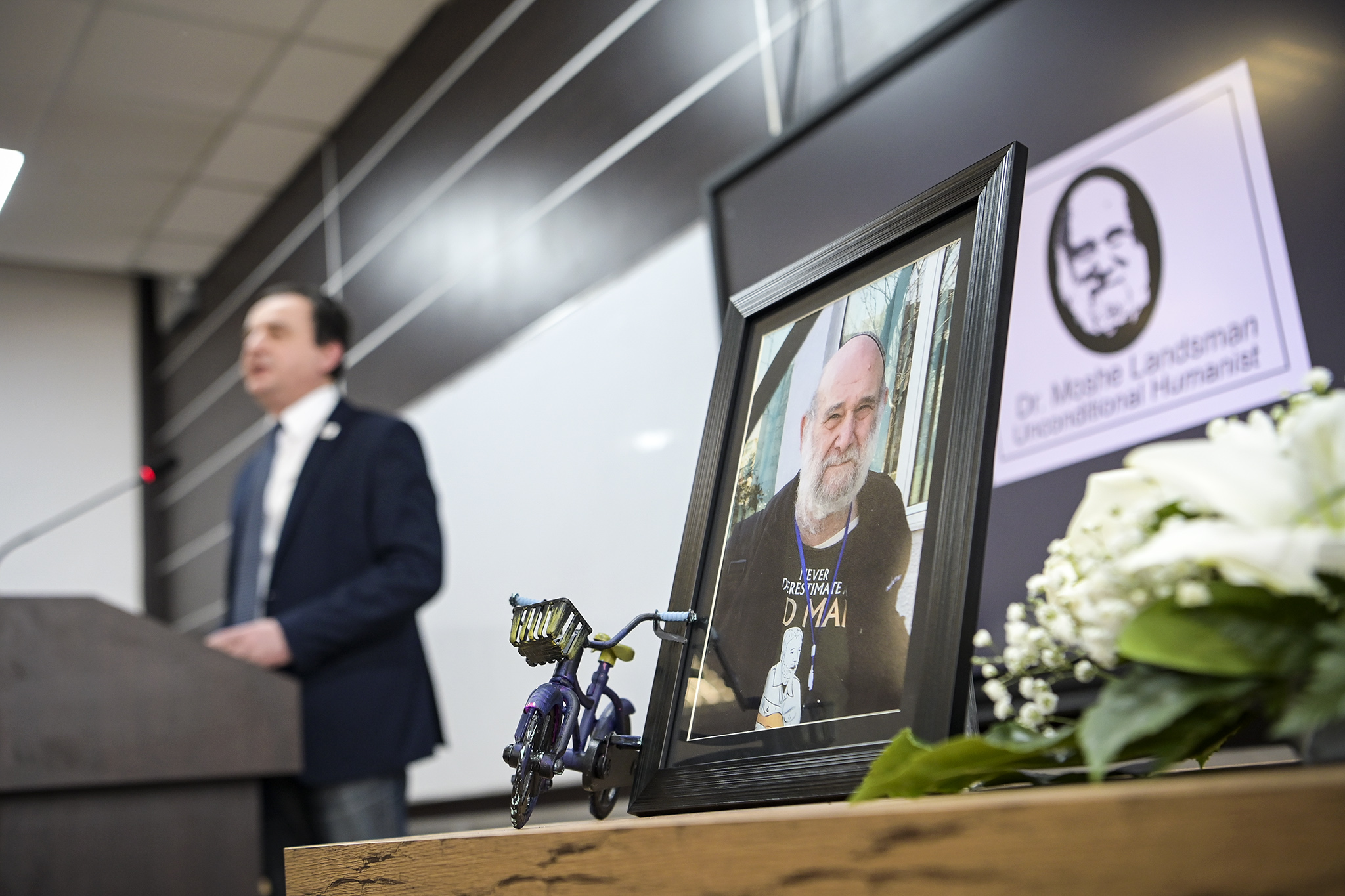Prishtina, 13 February, 2024
The Prime Minister of the Republic of Kosovo, Albin Kurti, participated today in the commemorative ceremony in honor of the life of Professor Moshe Landsman, co-founder of the Department of Psychology at the University of Pristina “Hasan Prishtina”.
In his opening speech, Prime Minister Kurti said that Professor Landsman turned his profession into activism, because what he read, what he knew, he shared with others in order to make society and the world even better than what it is, and all this not by working with society and the world in an abstract and general way, but individually with all those he met.
“In Kosovo, we know him as one of the first who landed in a humanitarian group after the war in Kosovo, and helped the victims of the war. So, he asked them who the victim is in a situation. And deal with the victim first. And through the victim, he understood that situation and tried to change it with others” he expressed.
Professor Moshe’s contribution will continue with the students and collaborators who in his figure find both inspiration for further work and contribution.
While remembering the meeting with him last year, the Prime Minister concluded his speech by expressing his condolences and admiration for Professor Moshe Landsman.
Last year, the Ministry of Education, Science, Technology and Innovation evaluated Dr. Landsman with an honorary award for his outstanding contribution to the development of education in Kosovo, with special emphasis on the field of psychology.
Dr. Landsman has left behind a valuable career as a professor and psychologist in Israel since the 1970s, while his connection with Kosovo dates back to the post-war period when he first came to help survivors of sexual violence during the war. In the Department of Psychology of the University of Pristina, the first post-war in Kosovo, Dr. Landsman has been a professor for many years and has left his mark on the graduation of many generations of psychology students.
Prime Minister Kurti’s speech:
Dear Professors of the Department of Psychology,
Dear students,
Dear attendees,
Moshe Landsman was a psychologist, professor, teacher, counselor, mentor, activist and worker of positive and progressive changes, centered on people and law.
He turned his profession into activism because what he read, what he knew, he shared with others and tried to use it and make good use of it so that society, the world, becomes even better than it is. And all this not by working with society and the world in an abstract and general way, but individually with all those he met and all those he exchanged with.
In Kosovo, we know him as one of the first who landed in a humanitarian group after the war in Kosovo, and helped the victims of the war. So, he asked them who the victim is in a situation. And deal with the victim first. And through the victim, he understood that situation and tried to change it with others.
Together with Professor Neki Juniku, academician Pajazit Nushi, Professor Willy Butollo and our psychologists, he was a co-founder of the Department of Psychology at the University of Pristina.
As a community psychologist, social justice, liberation and empowerment were at the center of his preoccupations and engagement in the Center for the Rehabilitation of Torture Victims, with the National Autism Association and with many other civil society organizations in Kosovo, but also in other countries.
Undoubtedly, Moshe contributed a lot, and his contribution will continue with the students and collaborators who, in his figure, also find inspiration for their work and further contribution.
From the meetings that I have had with him, we have constantly discussed the issues of people who have gone through prisons in Kosovo, those who have come out of prison but have carried it with them and on the other hand about the readings that I gave them. Of course in the discussions about my readings, it was very clear that I was more enthusiastic than talented, and I was very impressed that, to put it mildly, there was a strong knowledge of dynamic psychoanalysis, which preoccupied me, but at the same time it was communitarian, as it entered my work.
I mean, not a Freudism, let’s say the trinity, the ego, the superego and id, in a kind of let’s say ego psychology like “Me, Myself and I”, I was more interested in how this is shared with others, inter subjectivity and so on, and I was very impressed by how at the same time he tried to help me but not without criticism, that is, not without someone who does not help you question yourself at the same time. So you progress, but progress in one way in which you are more sure of the goals than you are of yourself. So you love what you want to achieve more than yourself as the subject who aims for that goal.
And besides that, where it has inspired me a lot personally is in the idea of the function of psychology in a let’s say liberating aspect. Because one of the discussions with him has been how we are more certain about liberation than about freedom.
The need to be liberated and the project of liberation has greater security than a sentiment in freedom.
And this agreed with me, as I said, because I also believed that both the identity aspect, and that of social and political commitment, take on a more secure meaning when they are part of a liberating project than simply enjoying freedom as such, because then always it was emphasized whether we are sure that we are free, and if we are free to what extent.
And the project of liberation, which was actually part of my personal formation because of the 90s and 80s, became a very important aspect for what I wanted to do. And at the end of the day, I have never met anyone else with such a piercing, penetrating and benevolent gaze.
Because those who look at you in such a penetrating way, you automatically get the impression that they don’t want the best, that is, they look at you a bit like an investigating policeman, like a prosecutor or like a doctor or a teacher or so on.
But that penetrating look that has a kind of negative spontaneity, yes he always has that penetrating, piercing look with me, but I never felt bad that he was very kind. Therefore, allow me to join you in our condolences for him and our admiration for him.
Last modified: February 14, 2024
